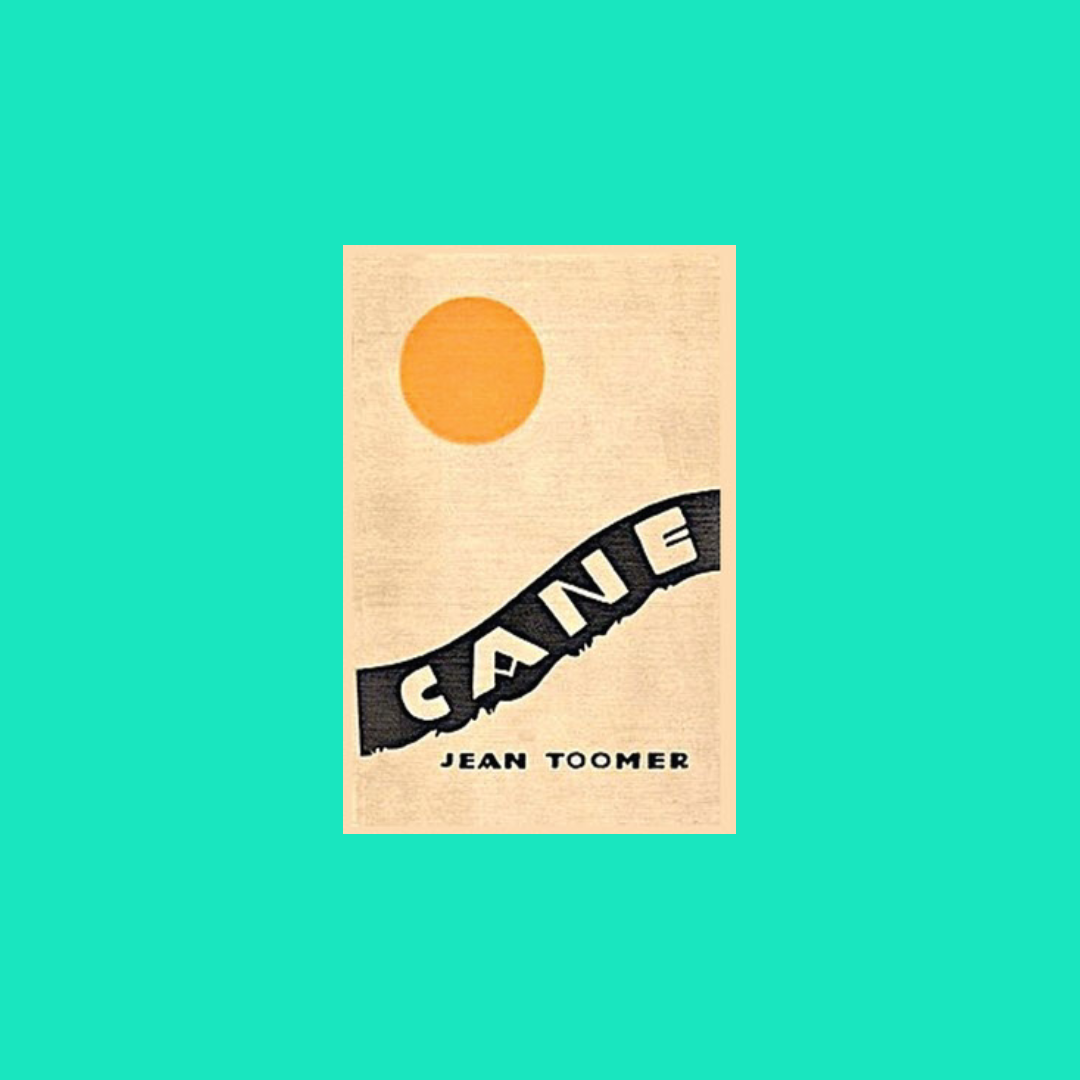APS TOGETHER
Cane by Jean Toomer

Hosted by Sharifa Rhodes-Pitts
Began on August 3, 2022 (12 Days)
Share this book club
My mother's bookshelves were the atlas by which I first plotted the coordinates of the world. The titles on their spines indicated the directions, like points on a compass rose. Afternoons spent crouching along the wall of bookshelves, I tried to develop a sense of where we came from and to whom we belonged. The books were a record of my mother's coming of age during the black feminist flowering of the 1970s and 80s. Many bore stamps showing they'd come from Amistad Books, the black women-owned bookstore we frequented throughout my childhood. Some others had journeyed to the shelves having followed my mother from that unknowable territory: her life before we were born.
My mother's books defined my idea of the possible. Because of them, I took some things for granted. We could call this inheritance, or tradition. The summer before college I snagged a few on extended loan: June Jordan's Civil Wars; Lorraine Hansberry's To Be Young, Gifted and Black, and Alice Walker's In Search of Our Mothers' Gardens. These were the survival gear carried to a numbing job in a copy shop located in the basement of a law firm's tower. I read on my lunch break and during the bus rides to and from downtown, passing the landscapes where I grew up but were not really my home, fulfilling a generational imperative to propel myself by achievement. This was where I came from; it was not where I belonged. The path leading away from home was narrow, I dared not detour. The books were suggestions of how to be in this world, and how far one could go.
And like all my favorite books, they were worlds that pointed to worlds beyond. It was in Walker that I first encountered the figure of Jean Toomer, making scattered appearances across the collection's pages and finally the subject of an essay of his own. In "The Divided Life of Jean Toomer," Walker, a native daughter of the region that inspired his 1923 masterpiece Cane, attempts to reconcile Toomer's gifts and contradictions: his clairvoyance and short-sightedness, his women who are as often icons of freedom as marionettes.
The result of Toomer's brief voyage in the South, Cane is itself a journey: from south to north and back again, migrating between poetry and prose, traversing interior and exterior terrain. It was written as the Great Migration was under way, a movement spurred by the old yearnings of a people breaking time, at once world-historical and the news. It is the record Toomer attempted to make of what he was seeing, hearing, feeling:
The folk-spirit was walking in to die on the modern desert. That spirit was so beautiful. Its death was so tragic. Just this seemed to sum life for me. And this was the feeling I put into Cane. Cane was a swan-song. It was a song of an end.
This song of an end seemed to announce a beginning—the dawn Alain Locke described two years later in his epoch-defining polemic "Enter the New Negro": "We have not been watching in the right direction; set North and South on a sectional axis, we have not noticed the East till the sun has us blinking."
But the light of the coming Harlem Renaissance cast too narrow a beam. Jean Toomer wanted to fly behind the sun. Not long after Cane's publication, Toomer resolved that he was something even more novel: neither black nor white, but American. Miscegenated, self-revising, he belonged, finally to his country, its problems, its promises. (He occasionally masqueraded as Native or Arab).
It was his answer to the question of where he came from and to whom he belonged. Seeking direction from mystic teachers of the old New Age, Toomer shaped a morality with the self at the center, unaccountable to larger struggles.
My first year of college, I took a survey of African-American literature. One day, the scholar Farah Jasmine Griffin was a most extraordinary substitute for our professor, Henry Louis Gates, Jr. The book for that week's session was Cane. My heart came to attention as I watched her assume the lectern. Following the way-markers set by my mother's bookshelves, I had arrived, in a sense, at home: reading as I had been taught, first by my mother, then by her books.
Over subsequent nomadic years, packing and unpacking my boxes of books, I laugh to find the number of copies of Cane among them. I stock them like provisions, a load worth carrying.
I have never stopped reading Cane, I am always reading it. It is not finished for me. I have barely begun.
What a pleasure to be beginning again with you.

Sharifa Rhodes-Pitts
is the author of Harlem Is Nowhere: A Journey to the Mecca of Black America, an essay from which appeared in A Public Space No. 12. The first volume of a planned trilogy on African-Americans and utopia (Harlem, Haiti, and the Black Belt of the American South), it was a New York Times Notable Book and a National Book Critics Circle Award finalist. She is also the author of a book for young readers, Jake Makes a World: Jacob Lawrence a Young Artist in Harlem, commissioned by MoMA and illustrated by Christopher Myers. She organizes collaborative public projects through the Freedwomen's Bureau and is an assistant professor of writing at Pratt Institute.

Jean Toomer
(1894-1967) was a poet, novelist, and playwright. Born in Washington, DC, he was raised by his mother and his grandfather, who had been a Union soldier during the Civil War and later served as Acting Governor of Louisiana during Reconstruction. In addition to Cane, he was the author of the long lyrical poem Blue Meridian and also published stories, poems, and criticism in magazines including poems Broom, Crisis, Little Review, Modern Review, and Adelphi. He died in Philadelphia, having lived his last decade as a recluse.

Daily Reading
Day 1
Cane. "Karintha" to "Georgia Dusk"
August 3, 2022 by Sharifa Rhodes-Pitts
Karintha, at twelve, was a wild flash that told the other folks just what it was to live. In this opening vignette, as throughout the book, it is hard to speak of Toomer's women as heroines
Day 2
Cane. "Fern" to "Esther"
August 4, 2022 by Sharifa Rhodes-Pitts
When a woman seeks, you will have observed, her eyes deny. Fern’s eyes desired nothing that you could give her; there was no reason why they should withhold
We are again in the puzzle of an irresistible woman—figured as denying, withholding.
Day 3
Cane. "Conversion" to "Blood Burning Moon"
August 5, 2022 by Sharifa Rhodes-Pitts
During this reading I've been increasingly compelled by Toomer's scattered references to Africa. A gift of re-reading.
Day 4
Cane. "Seventh Street" to "Storm Ending"
August 6, 2022 by Sharifa Rhodes-Pitts
Money burns the pocket, pocket hurts, Bootleggers in silken shirts, Ballooned, zooming Cadillacs, Whizzing, whizzing down the street-car tracks.
With this verse we are thrust into the second section of the book.
Day 5
Cane. "Theater" to "Calling Jesus"
August 7, 2022 by Sharifa Rhodes-Pitts
At night, road-shows volley songs into the mass-heart of black people.
The road-show invoked here is another emblem of movement that paralleled the start of the Great Migration—the traveling road shows, vestiges of the vaudeville and minstrel circuits, were a crucible in which blues and jazz musics were refined and met the world.
Day 6
Cane. "Box Seat" to "Harvest"
August 8, 2022 by Sharifa Rhodes-Pitts
virginal houses
I want to keep track of these houses: they are "shy girls;" they contain the "withered people" who must be taught to dream.
Day 7
Cane. "Bona and Paul"
August 9, 2022 by Sharifa Rhodes-Pitts
and give precision to the movements of sick people who all their lives have been drilling.
This description of the training of the student teachers doing drills is a sly indictment of education, conformity.
Day 8
Cane. "Kabnis," sections 1-2
August 10, 2022 by Sharifa Rhodes-Pitts
And cracks between the boards are black. These cracks are the lips the night winds use for whispering. Night winds in Georgia are vagrant poets, whispering. Kabnis, against his will, lets his book slip down, and listens to them. The warm whiteness of his bed, the lamp-light, do not protect him from the weird chill of their song.
For the first time, it feels like Toomer is naming the speaker of his verse. It is the voice of the night wind.
Day 9
Cane. "Kabnis," section 3
August 11, 2022 by Sharifa Rhodes-Pitts
A splotchy figure drives forward along the cane- and corn-stalk hemmed-in road. A scarecrow replica of Kabnis, awkwardly animate. Fantastically plastered with red Georgia mud.
In flight, Kabnis has become a "scarecrow replica of himself"—has he lost some part of his humanity?
Day 10
Cane. "Kabnis," section 4
August 12, 2022 by Sharifa Rhodes-Pitts
Halsey’s workshop.
This description of the wheelwright's shop tells us much about the space, the time, the people: its outside walls are marked by "what looks like musket-shot," suggesting its age and possible action in the Civil War.
Day 11
Cane. "Kabnis," section 5
August 13, 2022 by Sharifa Rhodes-Pitts
Night, soft belly of a pregnant Negress, throbs evenly against the torso of the South. Night throbs a womb-song to the South. Cane- and cotton-fields, pine forests, cypress swamps, sawmills, and factories are fecund at her touch. Night’s womb-song sets them singing. Night winds are the breathing of the unborn child whose calm throbbing in the belly of a Negress sets them somnolently singing. Hear their song.
This ode figures the night as a pregnant black woman, inevitably recalling up the vicious lynching mentioned earlier.
Day 12
Cane. "Kabnis," section 6
August 14, 2022 by Sharifa Rhodes-Pitts
The cellar swims in a pale phosphorescence. The table, the chairs, the figure of the old man are amœba-like shadows which move about and float in it. In the corner under the steps, close to the floor, a solid blackness. A sound comes from it. A forcible yawn. Part of the blackness detaches itself so that it may be seen against the grayness of the wall. It moves forward and then seems to be clothing itself in odd dangling bits of shadow. The voice of Halsey, vibrant and deepened, calls.
This section opens as a beautiful tableau vivant: we have light and shadow and sound. It is not quite earthly or human, but moves.